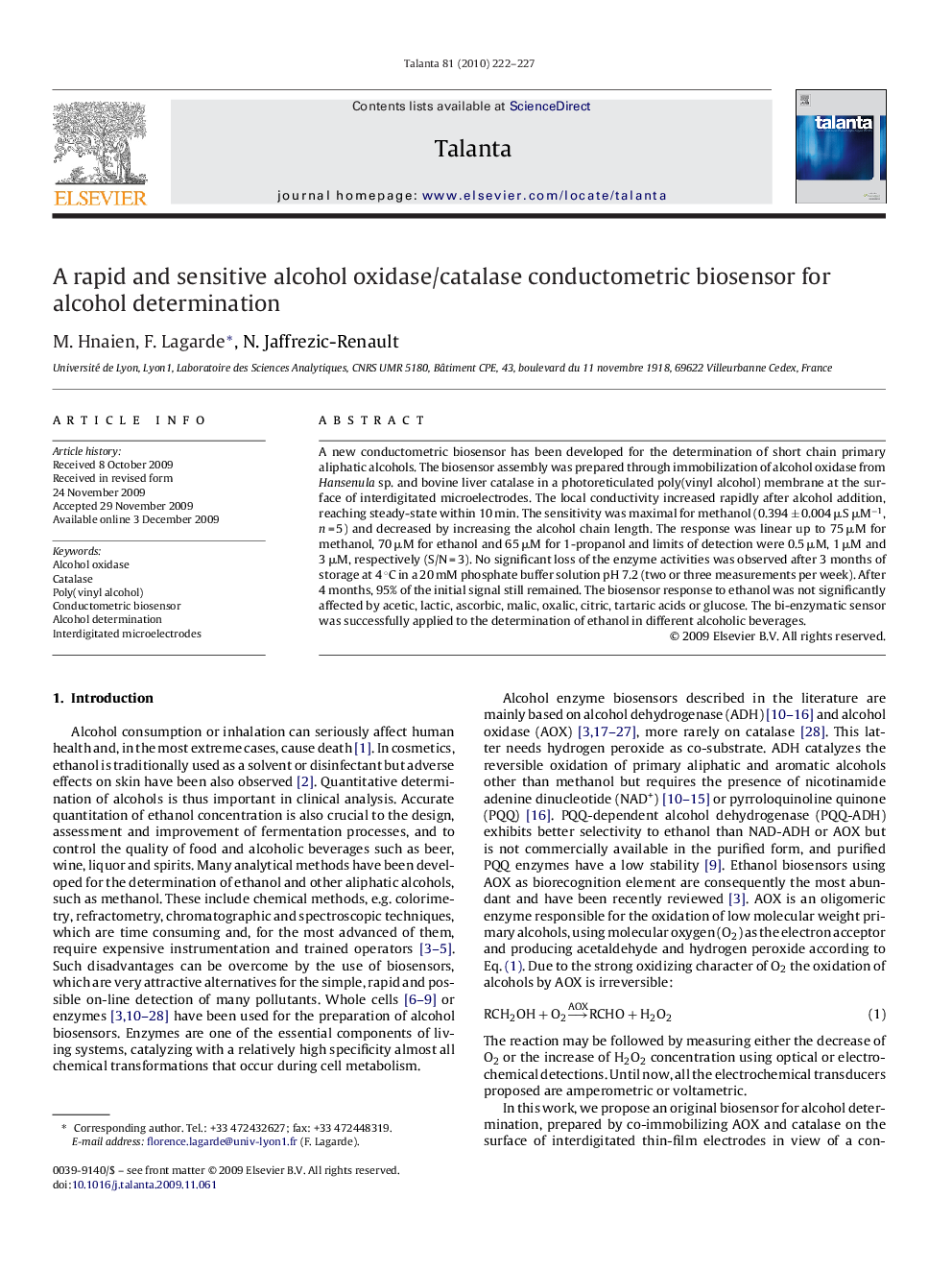| Article ID | Journal | Published Year | Pages | File Type |
|---|---|---|---|---|
| 1246637 | Talanta | 2010 | 6 Pages |
A new conductometric biosensor has been developed for the determination of short chain primary aliphatic alcohols. The biosensor assembly was prepared through immobilization of alcohol oxidase from Hansenula sp. and bovine liver catalase in a photoreticulated poly(vinyl alcohol) membrane at the surface of interdigitated microelectrodes. The local conductivity increased rapidly after alcohol addition, reaching steady-state within 10 min. The sensitivity was maximal for methanol (0.394 ± 0.004 μS μM−1, n = 5) and decreased by increasing the alcohol chain length. The response was linear up to 75 μM for methanol, 70 μM for ethanol and 65 μM for 1-propanol and limits of detection were 0.5 μM, 1 μM and 3 μM, respectively (S/N = 3). No significant loss of the enzyme activities was observed after 3 months of storage at 4 °C in a 20 mM phosphate buffer solution pH 7.2 (two or three measurements per week). After 4 months, 95% of the initial signal still remained. The biosensor response to ethanol was not significantly affected by acetic, lactic, ascorbic, malic, oxalic, citric, tartaric acids or glucose. The bi-enzymatic sensor was successfully applied to the determination of ethanol in different alcoholic beverages.
